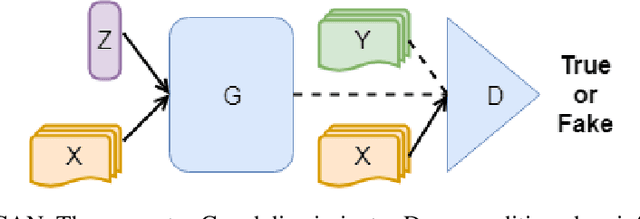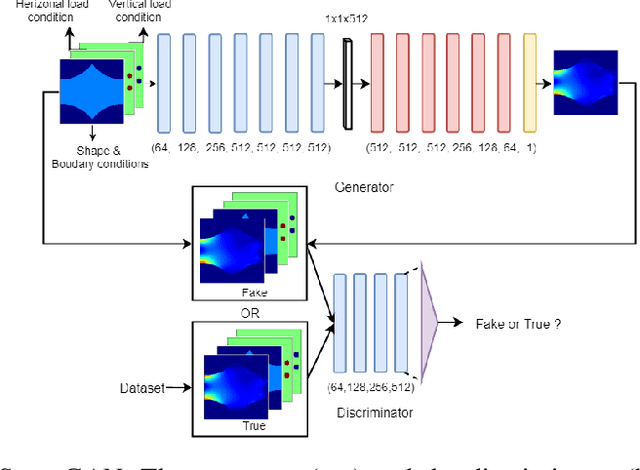Roselyn Yeo
StressGAN: A Generative Deep Learning Model for 2D Stress Distribution Prediction
May 30, 2020



Abstract:Using deep learning to analyze mechanical stress distributions has been gaining interest with the demand for fast stress analysis methods. Deep learning approaches have achieved excellent outcomes when utilized to speed up stress computation and learn the physics without prior knowledge of underlying equations. However, most studies restrict the variation of geometry or boundary conditions, making these methods difficult to be generalized to unseen configurations. We propose a conditional generative adversarial network (cGAN) model for predicting 2D von Mises stress distributions in solid structures. The cGAN learns to generate stress distributions conditioned by geometries, load, and boundary conditions through a two-player minimax game between two neural networks with no prior knowledge. By evaluating the generative network on two stress distribution datasets under multiple metrics, we demonstrate that our model can predict more accurate high-resolution stress distributions than a baseline convolutional neural network model, given various and complex cases of geometry, load and boundary conditions.
 Add to Chrome
Add to Chrome Add to Firefox
Add to Firefox Add to Edge
Add to Edge